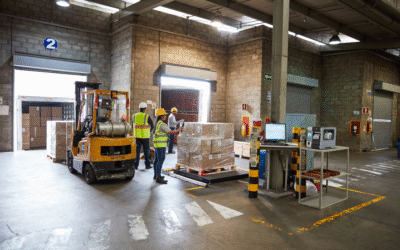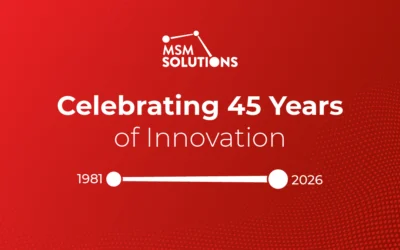Effective medical logistics is crucial in ensuring that healthcare providers have timely access to essential medical supplies and equipment. The medical supplies market is projected to grow to $163.5 billion by 2027 at a compound annual growth rate (CAGR) of 3.4%1. This growth is driven by several factors, including the rising incidence of chronic diseases, increasing government investments in healthcare infrastructure, and the growing need for infection control measures, especially in preventing healthcare-associated infections (HAIs). Additionally, the demand for medical devices continues to rise due to an increasing number of surgical procedures globally.
However, managing medical logistics comes with significant challenges, including supply chain disruptions. Nearly 80% of healthcare providers and 84% of suppliers anticipate that supply chain issues will either worsen or stay the same.2 These disruptions highlight the need for resilient supply chains to ensure the seamless delivery of critical medical supplies.
What Is the Meaning of Medical Logistics?
Medical logistics refers to the coordination and management of the supply chain for medical products and equipment, ensuring their timely delivery to healthcare facilities or patients. This includes procuring, storing, and transporting essential items like medications, medical devices, and protective equipment. The goal is to maintain a steady flow of supplies to support patient care while minimizing delays and disruptions. Advances like RFID in healthcare help improve efficiency by providing real-time tracking and inventory management.
In this blog, we explore the major challenges in medical logistics and how the integration of RFID technology in healthcare can streamline processes, enhance inventory tracking, and improve overall efficiency:
- Patient-Centric Supply Chains
- Resilience Requirement for Medical Supplies
- Decentralized Medical Equipment
- Vaccination Campaign Logistics
Patient-Centric Supply Chains
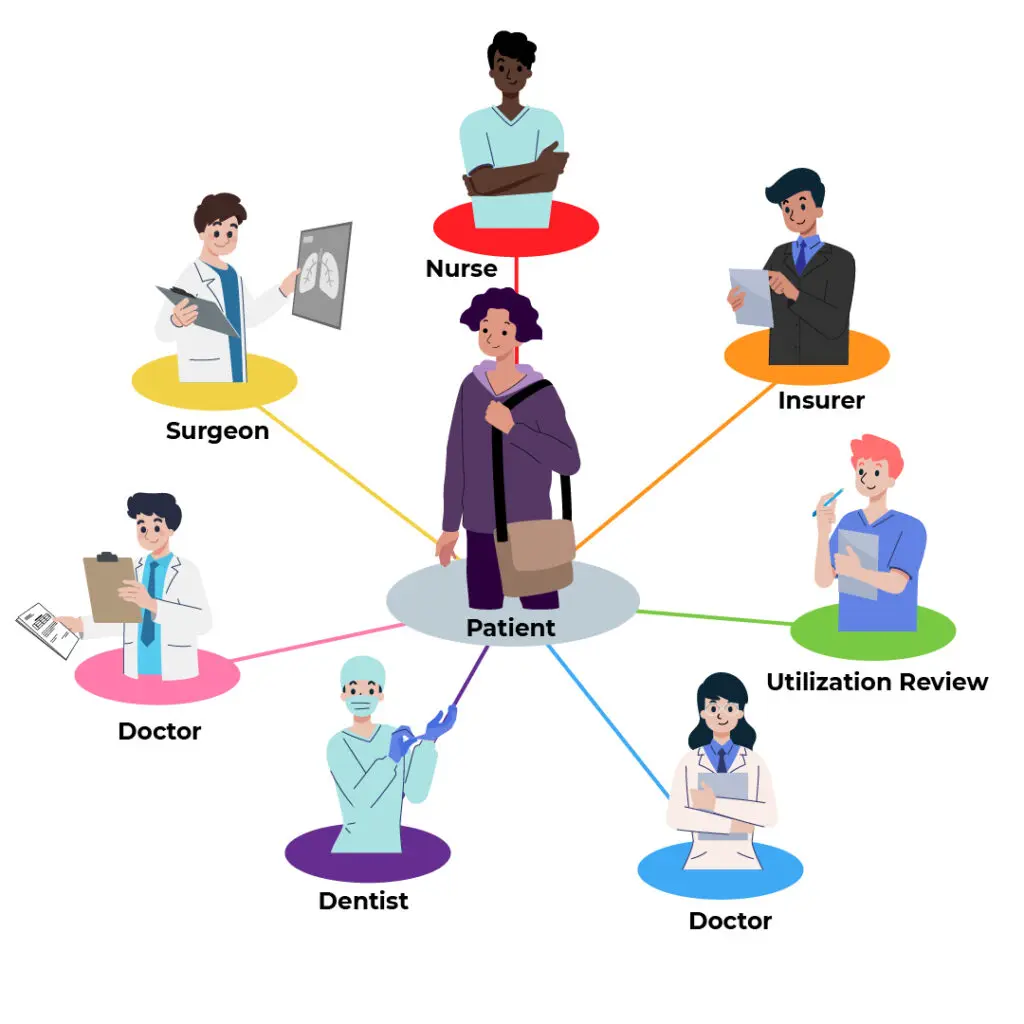
Healthcare in the U.S. is changing as patients with chronic health conditions increasingly prefer managing their care from home. Many seek to avoid frequent visits to doctors’ offices, hospitals, or pharmacies, opting for at-home treatments and remote healthcare options. This shift toward self-care and home-based healthcare has been driven by rising healthcare costs, technological advancements, and patients’ desire for more control over their treatment plans.
As e-commerce continues to evolve, patients expect the same innovation from the medical industry. They want quick and convenient delivery with as little in-person interaction as possible. This is putting a strain on pharmaceutical and medical supply retailers who’ve been more dependent on physical retail locations as a primary distribution center.
With the growing demand for home delivery of medications and medical devices, companies are investing in better planning, inventory management, and order fulfillment systems to meet patient expectations while maintaining compliance with healthcare regulations.
Resilience Requirement for Medical Supplies
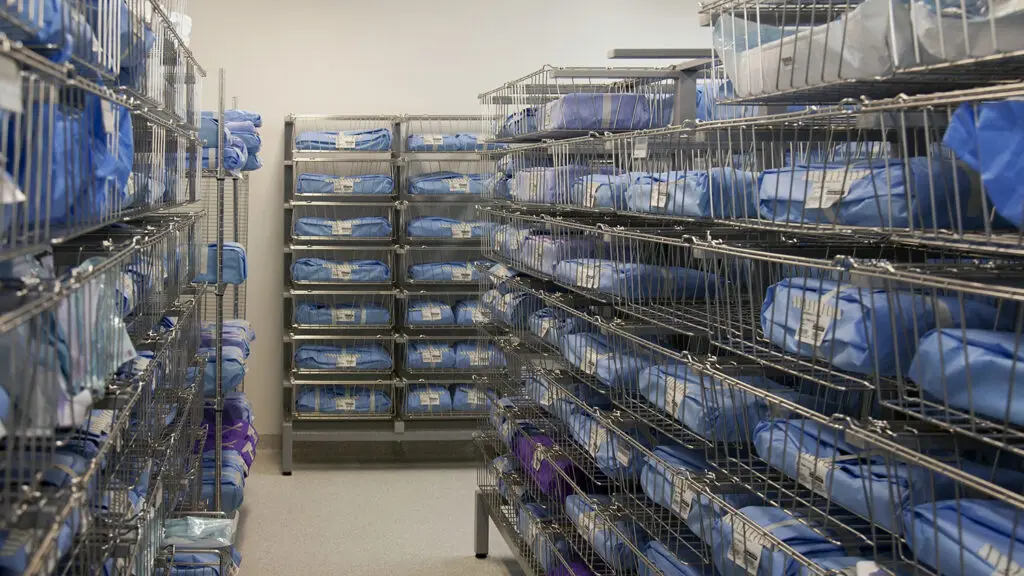
The healthcare sector has faced numerous supply chain challenges, from natural disasters to global disruptions that impact the production of essential medical supplies such as masks, gloves, and syringes. These events have highlighted the critical need for supply chain resilience to ensure that hospitals and medical offices can maintain access to the supplies they depend on.
Supply chain delays, labor shortages, and the influx of low-quality or counterfeit products have prompted healthcare providers to establish more robust systems for monitoring inventory and ensuring quality control.
By enhancing supply chain transparency and leveraging RFID logistics solutions, healthcare providers can ensure they are better prepared to withstand future disruptions, safeguarding both patient care and operational efficiency.
Decentralized Medical Equipment
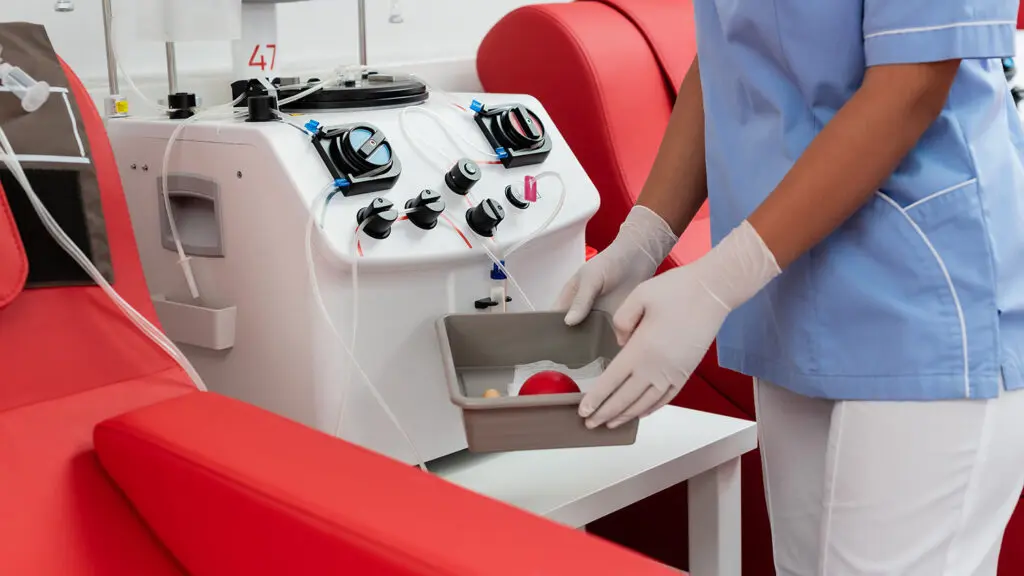
Patients that require regular treatments for chronic illness or rehabilitation for recovery are more likely to adhere to their doctors’ orders if they can do it home. This shift toward home-based healthcare leads to better adherence and faster recovery times, keeping patients out of hospitals results in better health outcomes and lower costs for payers.
Moving treatment away from hospitals to patient homes or care facilities like nursing homes means providing access to important medical equipment outside of the hospital. Therapeutic and durable medical equipment like dialysis equipment, CPAP machines and ventilators can be issued while remaining connected to medical offices with RFID equipment check-in/check-out.
By delivering valuable medical equipment to patient homes or other decentralized locations, you need a solution like RFID that can efficiently and accurately track and manage their distribution. The benefit of RFID tracking for home medical equipment is that the identification can not be counterfeited or manipulated. The distributor and manufacturer can verify that the correct equipment has been delivered, maintained and returned.
Vaccination Campaign Logistics
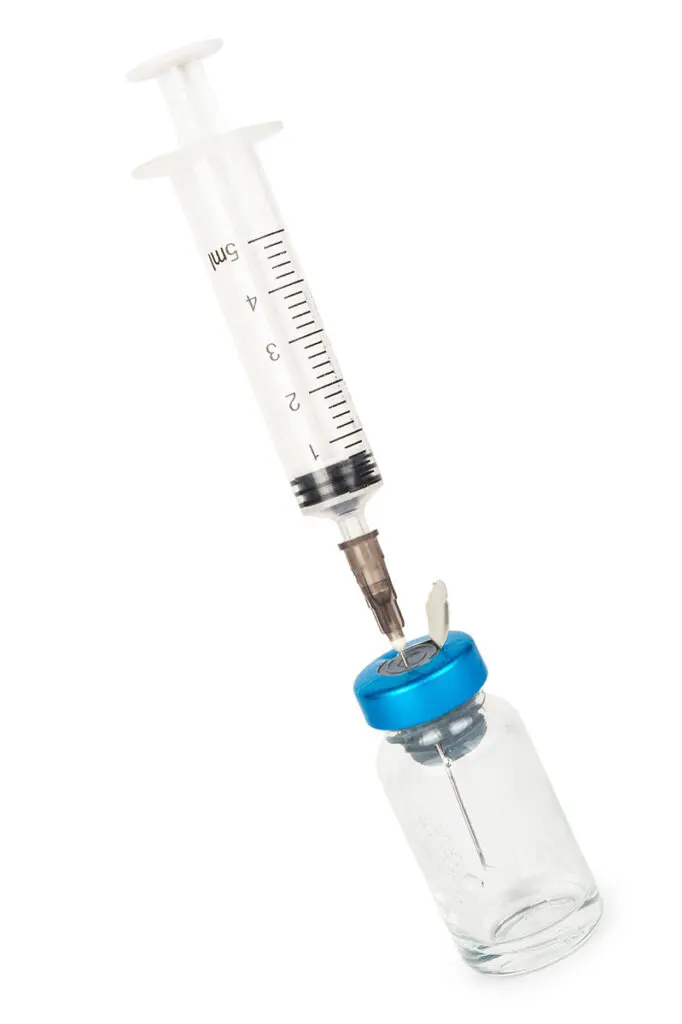
Managing large-scale vaccination efforts, whether for influenza, emerging viral pathogens, or other infectious diseases, is a complex and resource-intensive process. These campaigns require meticulous planning to prioritize groups based on vulnerability, such as the elderly or immunocompromised individuals. Effective vaccination campaigns also hinge on ensuring vaccine availability and timely distribution, along with accurate tracking of testing equipment.
Success in such campaigns depends on efficiently managing logistics, from production to administration. Implementing RFID technology in healthcare logistics allows for real-time tracking of vaccine stock levels, ensuring that testing kits and vaccines are available where and when needed. This improves the speed and accuracy of distribution, minimizes waste, and ensures vaccines reach the most at-risk populations quickly.
Managing Today’s Medical Logistics Challenges
Key Benefits of RFID in Medical Logistics
| Challenges | RFID Solutions | Key Benefits |
|---|---|---|
| Patient-Centric Supply Chains | RFID healthcare solutions for direct-to-patient delivery | Improved delivery accuracy, reduced manual errors, real-time tracking |
| Supply Chain Resilience | RFID logistics solutions for sourcing transparency and monitoring | Reduced risk of counterfeit products, enhanced supply chain visibility |
| Decentralized Medical Equipment | RFID tracking of medical devices | Reduced risk of counterfeit, equipment check-in/check-out, improved equipment monitoring |
| Mass Vaccination Logistics | RFID in healthcare for vaccine and testing equipment tracking | Accurate prioritization of vulnerable groups, efficient distribution of vaccines and testing kits |
| Inventory Visibility and Management | RFID inventory tracking for healthcare | Enhanced stock control, real-time updates, prevention of stockouts |
Providing a simple solution to these challenges isn’t easy, but it is possible. All you have to do is adopt an inventory tracking solution that can help you manage and track your assets quickly, accurately and efficiently.
PortalTrack by MSM Solutions offers a more efficient way of tracking and managing your medical supply inventory. Using RFID technology – tags, scanners, portals and antennas – you can automate your inventory management process for accurate, real-time tracking.
This means you know exactly what you have and where it’s located while it’s still on-site.
The core benefits of using PortalTrack to improve your medical supply inventory tracking and management include:
- Reduced operational costs.
- Increased supply chain efficiency.
- Improved total cost of ownership.
- Backed by MSM Solutions support.
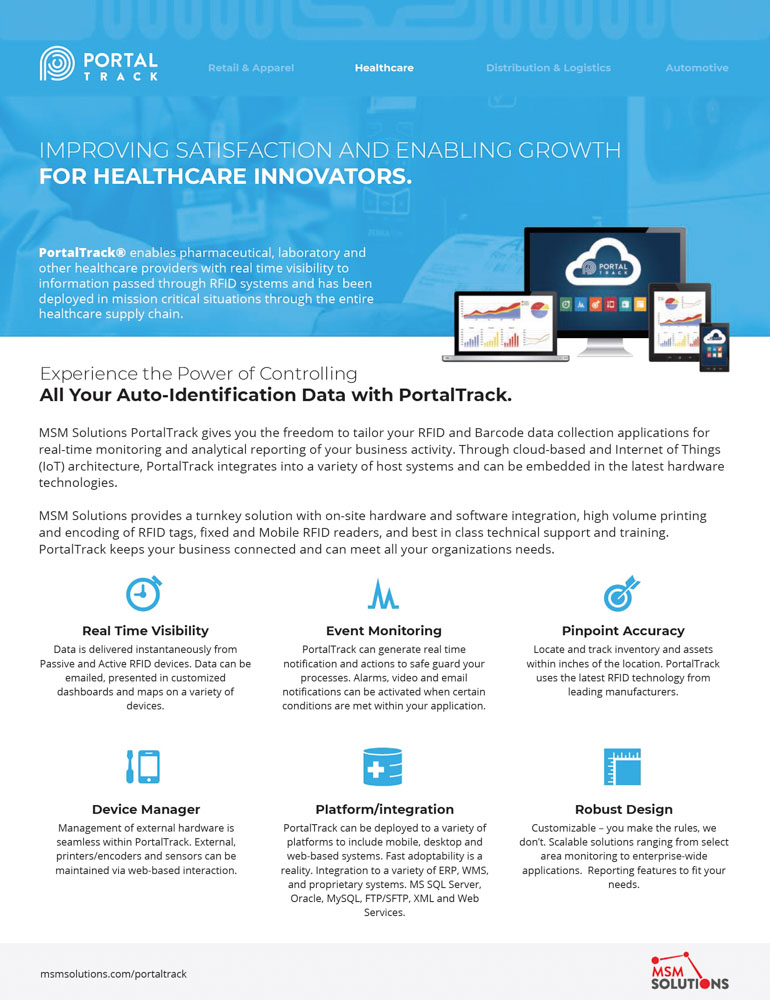
Discover how PortalTrack can streamline your healthcare operations and help you manage medical supply inventory and equipment with greater efficiency.
Then when you’re ready to see how it works, give our RFID experts a call. We’re happy to walk you through customized solutions or give you a free demo so you can see firsthand how MSM Solutions can help you.
1 Research and Markets. “Medical Supplies Market by Type – Global Forecast to 2027”

